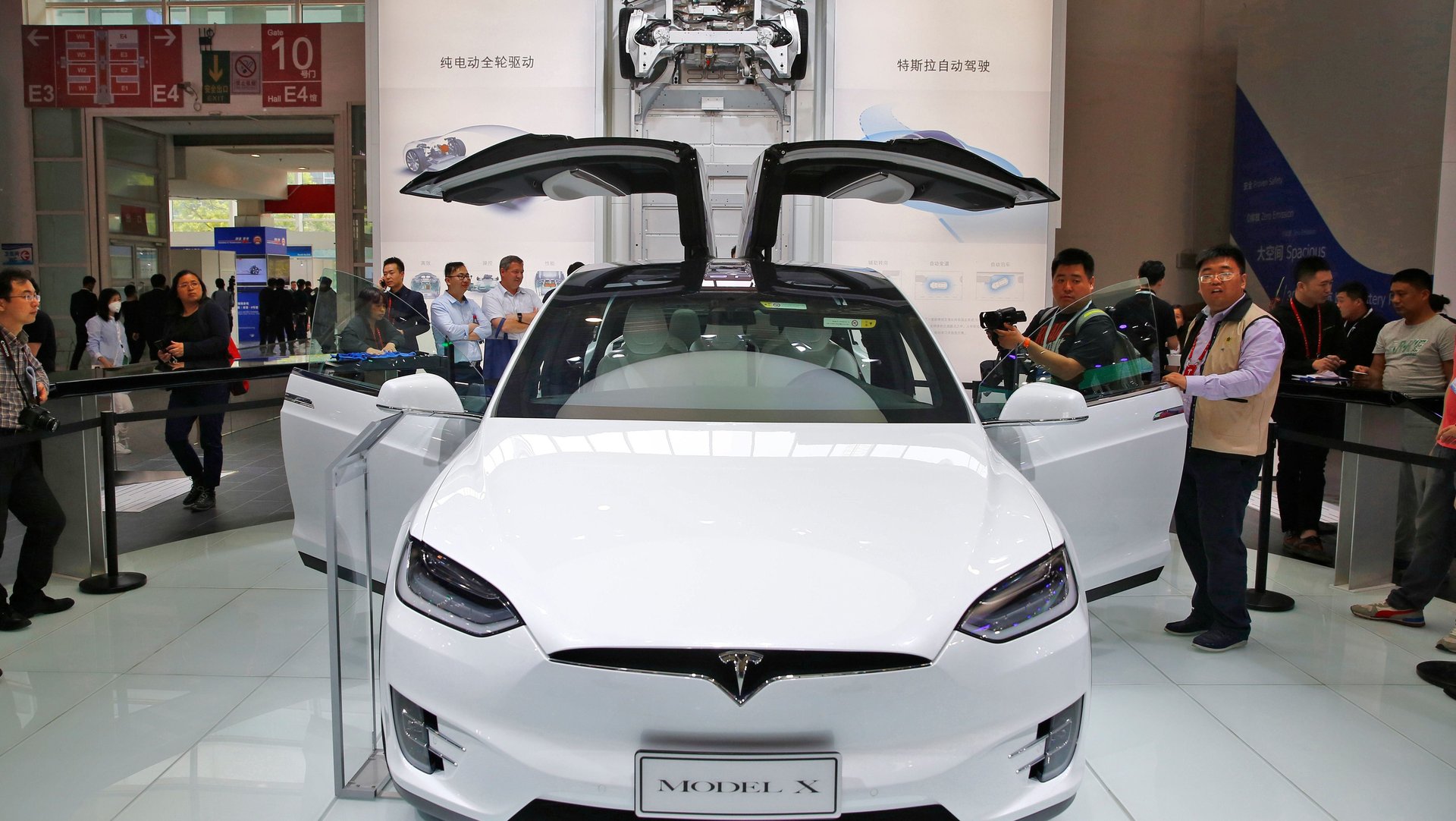Tesla has China woes to add to its US ones
In 2014, Tesla founder Elon Musk said that in the long run, a quarter (video) of the company’s made-in-California vehicles could go to China. Today, China is Tesla’s second-largest revenue generator, with some $2 billion in sales last year. It’s relying on China for nearly 10% of its revenue this year, according to Bloomberg.


In 2014, Tesla founder Elon Musk said that in the long run, a quarter (video) of the company’s made-in-California vehicles could go to China. Today, China is Tesla’s second-largest revenue generator, with some $2 billion in sales last year. It’s relying on China for nearly 10% of its revenue this year, according to Bloomberg.
But Tesla’s hopes of increasing its footprint in China, the world’s largest market for electric vehicles, are now facing setbacks. On Monday, Tesla said it would recall nearly 9,000 Model S cars (link in Chinese) sold in China between 2013 and 2016, according to an announcement from China’s State Administration for Market Regulation, the country’s quality watchdog. The recall, which starts June 28, is part of a broader global recall of 123,000 vehicles the firm announced in March. Tesla needs to fix bolts in a power steering component that could corrode in very cold climates, creating safety concerns.
On the face of it, it’s not a major recall compared with some recent cases—Tesla will retrofit the part (paywall). Last year, German car manufacturer Volkswagen Group and its Chinese ventures recalled nearly 5 million vehicles over an airbag defect, one of the biggest in the automotive industry.
But it’s not great timing, coming at a moment when China and the US have just embarked on a trade war that could dent Tesla’s competitiveness. Last week, in response to additional tariffs proposed by the US, China announced it was looking at adding duties of 25% to a range of imported American goods, including cars. China’s actually a major market for American cars—the biggest after Canada. But many of them don’t feel the full brunt of existing Chinese auto tariffs because they manufacture in China in partnership with local firms, a requirement for setting up a plant in China. That’s not Tesla’s situation.
Tesla’s sticker price in China is already a lot higher than in the US, since it faces a 25% tariff as an import—a rate president Donald Trump alluded to in a recent tweet. Musk has compared the situation to “competing in an Olympic race while wearing lead shoes.” On Tuesday, China’s president Xi Jinping said at the Boao Forum, known as Asia’s Davos, that the country would “significantly lower” its import tariffs for vehicles. But it’s unclear at this point what will happen next. If China follows through on last week’s threat, Tesla’s Chinese customers could be paying prices that include a 50% tariff.
Tesla has been negotiating with the Shanghai government to set up its own manufacturing hub there. That wouldn’t necessarily help it avoid tariffs though, since it seems to be considering setting up without a partner in a special economic zone, meaning it would still be treated as an import. Plans haven’t been finalized yet and could be held up if trade tensions worsen.
“The trade war between China and the US is locking Tesla out, which is a good thing for us,” said Shen Hui (link in Chinese), founder of the Shanghai-based electric vehicle startup WM Motor, also speaking at the Boao Forum. Shen’s firm is among the many local EV startups that have sprung up in recent years, and that see Tesla as a competitor.
The China developments come as Tesla’s faces manufacturing troubles back home. The company had hoped to be producing 5,000 Model 3s a week by the end of 2017, a goal it later shifted to June of this year. Recent data showed the electric car maker only produced 2,020 Model 3 vehicles in the last week of March, short of the 2,500 per week goal it promised customers and investors it would achieve by that point in the year.
Tesla referred Quartz to the recall announcement made by the Chinese market regulation agency and didn’t comment on the threat of increased tariffs.
The piece has been updated with response from Tesla on April 11.